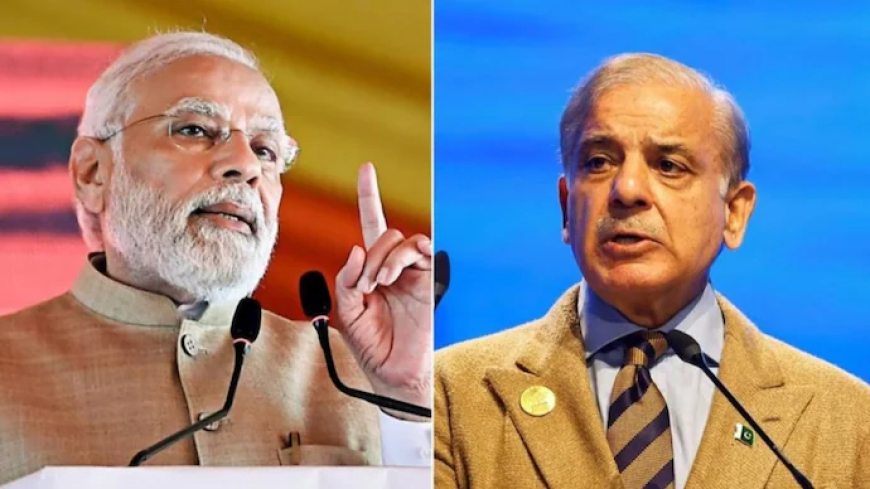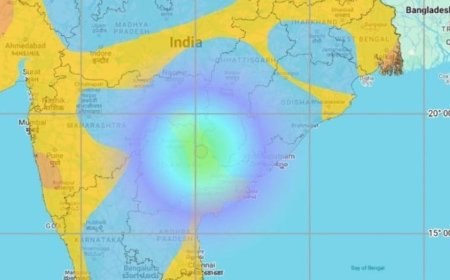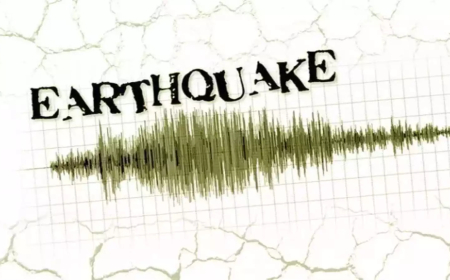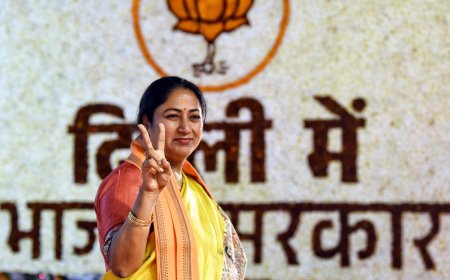Ceasefire Agreement with Pakistan: PM's Clear Message to NSA Ajit Doval and S. Jaishankar
The Indian Prime Minister emphasized the importance of negotiating a ceasefire with Pakistan on India's terms, a message clearly communicated to NSA Ajit Doval and Foreign Minister S. Jaishankar. This article explores the details of this stance, its significance, and its impact on Indo-Pak relations.

Introduction: A Clear Message from the Prime Minister
In recent developments, the Prime Minister of India has made it clear that any ceasefire agreement with Pakistan must be on India's terms. This strong message was delivered to key officials such as National Security Advisor (NSA) Ajit Doval and Foreign Minister S. Jaishankar. The PM's statement reflects India's firm stance on national security, sovereignty, and peace efforts in the region. In this blog, we will explore the key aspects of this development, its implications for Indo-Pak relations, and the future of peace talks.
1. The Context Behind the Ceasefire Demand
The Indian government's position on negotiating with Pakistan has always been shaped by a sense of pragmatism and caution. Previous peace agreements have been marred by Pakistan’s failure to fully comply with the terms, leading to trust issues between the two nations. Therefore, India's insistence on having the ceasefire agreement firmly rooted in its own conditions stems from a long-standing need to safeguard national interests.
For years, the border situation with Pakistan has been volatile, with sporadic flare-ups of violence, including cross-border terrorism, shelling, and ceasefire violations. The Prime Minister's message aims to signal to Pakistan and the international community that India is unwilling to compromise on its security and will engage only under terms that ensure its sovereignty and national security are protected.
2. The Role of NSA Ajit Doval in National Security Strategy
Ajit Doval, who serves as India’s NSA, has played a critical role in shaping the nation’s security policies. Known for his no-nonsense approach, Doval’s strategic thinking has been integral in various high-level decisions, especially concerning Pakistan. His role in communicating the Prime Minister’s message about the ceasefire is pivotal.
Doval's deep understanding of Pakistan's military and political landscape, coupled with his extensive experience in counterterrorism operations, makes him an important figure in the discourse surrounding ceasefire and peace talks. He has often emphasized the importance of not giving in to external pressures that may undermine India's national interests.
3. S. Jaishankar’s Diplomatic Efforts
S. Jaishankar, India’s Foreign Minister, is another key player in this high-stakes negotiation process. Known for his diplomatic acumen, Jaishankar has consistently advocated for a peace process based on mutual respect and understanding. His approach towards Pakistan, while cautious, is focused on maintaining India’s strategic autonomy and not allowing external influences to dictate terms.
Jaishankar's diplomatic efforts are not just limited to Pakistan but extend to managing India's international relations, especially with global powers such as the United States, Russia, and China. His role in reinforcing the PM's message of negotiating on India’s terms will be vital, particularly in the diplomatic arena.
4. Pakistan’s Response to the Ceasefire Demand
Pakistan's response to this Indian stance has been mixed. On one hand, there have been diplomatic overtures for dialogue, including appeals for a peaceful resolution to the Kashmir conflict and other border issues. On the other hand, Pakistan has not entirely ruled out the possibility of renewed conflict, especially given its strategic interests in the region.
Pakistan’s military establishment, which plays a significant role in the country's foreign policy, has often shown reluctance to commit to a sustained ceasefire. This, in turn, complicates the peace process. The Prime Minister's message to Pakistan underscores India's readiness for peace, but only if Pakistan adheres to India’s conditions, ensuring that it does not use ceasefire agreements to regroup and rearm its forces.
5. The Importance of Clear Terms in Ceasefire Agreements
A ceasefire agreement between India and Pakistan is not just about halting the violence; it is about creating conditions for meaningful dialogue. For India, this means ensuring that Pakistan ceases its support for cross-border terrorism, respects international boundaries, and creates an atmosphere conducive to peace talks.
India's insistence on clear, enforceable terms is not only a matter of national security but also a response to past failures in ceasefire agreements. The 2003 ceasefire agreement, for instance, was often violated by Pakistan, leading to a breakdown in trust. Therefore, the Prime Minister’s message highlights the need for stronger mechanisms that can hold Pakistan accountable.
6. The Role of International Community in the Ceasefire Process
The international community plays a crucial role in shaping the discourse around the India-Pakistan ceasefire. Countries like the United States, China, and Russia have long been involved in mediating peace talks and urging both nations to find common ground.
However, India's position remains firm. While the international community can provide diplomatic support, the Prime Minister has made it clear that India will not accept any peace process that compromises its sovereignty or national security. This stance highlights the growing importance of India’s self-reliance in managing its national security and foreign policy, as it seeks a more assertive role on the global stage.
7. Security, Sovereignty, and Diplomacy: India’s Vision for Peace
India's vision for peace with Pakistan is rooted in the principles of security, sovereignty, and diplomacy. The ceasefire, as envisioned by the Prime Minister, is not merely a temporary halt to violence but a cornerstone for a long-term resolution to regional conflicts. The message sent to NSA Ajit Doval and Foreign Minister S. Jaishankar reflects the broader strategic goal of not allowing India’s security to be compromised in the pursuit of peace.
The government's focus on security ensures that India is prepared for all eventualities, including potential escalations. However, there is also a desire for peace, provided it is structured in a way that protects India’s core interests. By articulating these terms clearly, India signals its readiness for dialogue while keeping its national security at the forefront.
8. What Does This Mean for the Future of Indo-Pak Relations?
The future of Indo-Pak relations hinges on the willingness of both countries to engage in dialogue while respecting each other’s sovereignty. India's insistence on ceasefire terms that protect its national security is a crucial step in ensuring that any future negotiations are based on mutual respect and understanding.
While the path to peace remains uncertain, the PM’s clear message to NSA Ajit Doval and S. Jaishankar sets the stage for a more strategic and well-defined approach to relations with Pakistan. It is evident that India is ready to pursue peace, but only on terms that safeguard its interests and ensure long-term stability.
Conclusion: A Path Toward Peace, On India's Terms
In conclusion, the Indian Prime Minister’s clear stance on negotiating a ceasefire with Pakistan only on India’s terms reflects the nation’s unyielding commitment to its security and sovereignty. With the support of key figures like NSA Ajit Doval and Foreign Minister S. Jaishankar, India is positioning itself for a future where peace can only be achieved through mutual respect and understanding, and not through compromises that undermine its national interests.
As India continues to pursue peace, the world watches closely, hoping that this new phase of diplomacy will yield lasting results for regional stability.
This approach ensures that the blog is engaging, informative, and easy to read, with clear points, making it enjoyable for the reader while communicating the critical aspects of the Prime Minister's message to his key security and diplomatic team.
What's Your Reaction?






































































